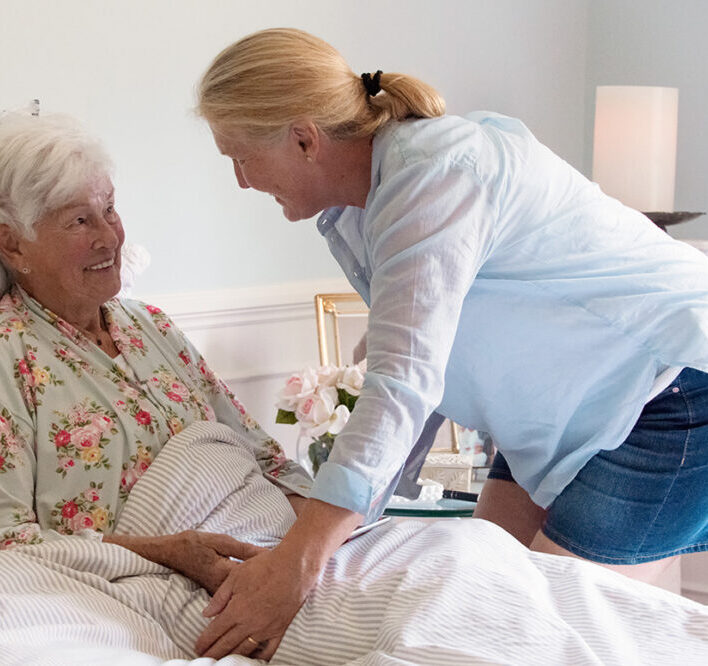LeadingAge Hospice Member Network – June 2022
CDC Project First Line
Members were joined by staff from the CDC to discuss Project Firstline, a collaborative of diverse healthcare and public health partners that aims to provide engaging, innovative, and effective infection control training for millions of frontline U.S. healthcare workers as well as members of the public health workforce. The COVID-19 pandemic highlighted long-standing gaps in infection control knowledge and practice in healthcare settings including disparities in infection control expertise in the current healthcare workforce, structural gaps in infection control training and education, lack of understanding in educational approaches for healthcare workers, and framing of infection control as a combination of rules, policies, and procedures. As part of Project First Line’s efforts to correct for these gaps they worked with the frontline health care workforce to better understand their learning needs and preferences and develop more interactive learning tools to meet the needs.
CDC staff shared that in the next six months to 18 month they will be conducting focus groups in home care and hospice to better understand the needs for infection control education and training in those settings. When these efforts begin, CDC will reach out to LeadingAge to recruit interested members to support this work. Several members on the call voiced an interest in participating.
Routine Home Care Telehealth Use Case
LeadingAge staff had the opportunity to speak with CMS payment policy staff in late May regarding several issues including telehealth 1135 waiver continuation. CMS staff was interested in examples of the clinical use of telehealth in hospice, specifically around routine home care. Hospice members discussed their experiences of using telehealth in hospice including clinical use cases and outcomes and what appropriate use looks like.
In general, members shared they were reducing their use of telehealth as the market demand shifted to more in-person care and vaccinations were more readily available to support safe in-person visits. Members did share that certifying clinicians were using telehealth flexibilities for face-to-face visits. In part, the low uptake is due to telehealth not being counted as a visit on claims.
Telehealth use case examples included:
- When a clinician tests positive for COVID-19 but can still conduct follow up visits from home using telehealth
- Conducting a second nurse visit follow up through telehealth to expand nurse capacity
- During triage situations where a clinician could do an initial assessment of the situation
- Weekend and overnight coverage situations when clinical staff may be in short supply
- When new medications are ordered and need to be reviewed with the patient before use
Many felt that with the current and likely long-term staffing shortages, the use of telehealth allowed them to extend their staff’s capacity. Members did say they were putting appropriate parameters on the use of telehealth such as only using it with patients who are technically savvy or had a family caregiver can help them access the telehealth visit.
Members also shared some concerns about the upcoming Hospice Visits in the Last Days of Life measure. The national average was 40 percent of providers making visits in the last days of life. Unfortunately, telehealth could not count for a visit, and neither would Licensed Practical Nurse staff, making it hard to improve.
Policy Update
Provider Relief Funds: Members were reminding about updates to the Provider Relief Funds program run by the Health Resources and Services Administration (HRSA). Regarding Phase 4 payments, HRSA has not yet distributed these because the amounts exceed $100,000 and therefore require the provider to establish an Optum Pay Account to receive the funds from HRSA. LeadingAge provided an article on how to establish an Optum Pay Account here. Members were encouraged to reach out to Nicole Fallon if they have any questions, nfallon@leadingage.org.
Update on Hospice Measures: CMS had originally planned to release these two new claims-based measures in the May 2022 but ultimately delayed the public release until August 2022. LeadingAge confirmed with CMS staff that the decision to delay in the inaugural public display of the two new measures was based on technical errors in the calculation of the measure scores. CMS has since corrected these issues, and hospices can expect to see these two new measures on their preview reports, as well as on the CMS Care Compare in August 2022. The August 2022 public refresh will coincide with the anticipated August 2022 introduction of the Hospice CAHPS Star Rating and there is no plan at this time to delay the 5-Star launch.
IRS Acts on Cost of Gasoline: For the first time ever, a gallon of regular gas now costs $5 on average nationwide, according to AAA. Increasing gas prices have hit home and community-based providers particularly hard on the staffing side given the nature of the job which might require an employee to visit multiple clients a day using their own personal vehicle. Last week the IRS attempted to alleviate some of those pressures by announcing an increase in the optional standard mileage rate for the final six months of 2022. Taxpayers can use the optional standard mileage rates to calculate the deductible costs of operating a vehicle for business purposes. For the final six months of 2022, the standard mileage rate will be 62.5 cents – that’s a 4-cent increase from the start of the year. This new rate will be effective July 1, 2022. One important caveat, the 14 cents per mile rate for charitable organizations remains unchanged as it’s set in federal statute.
Senate Bill Would Require Study on Nurse Staffing Agencies: On June 6, Senator Kevin Cramer (R-SD) introduced legislation requiring a GAO study of nurse staffing agencies’ impact on the healthcare field during the COVID-19 pandemic. LeadingAge supports this legislation. If enacted, the Travel Nursing Agency Transparency Study Act (S. 4352) would require GAO to conduct a study and report to Congress, within one year, on the business practices and the impact of hiring “travel” nurse agencies across the healthcare field during the COVID-19 pandemic. This LeadingAge article provides information on what the bill requires GAO to assess and links to a letter that LeadingAge and several long-term care and healthcare organizations sent to the White House COVID-19 Response Team requesting the federal government to look into exorbitant nurse staffing agency rates that came into practice during the COVID-19 pandemic. The article also has a link to a letter LeadingAge wrote to the FTC urging them to investigate nurse staffing agencies’ conduct as a potential violation of antitrust and/or consumer protection laws. The article also links to a chart compiled by LeadingAge listing state bills that place prohibitions on price gouging by staffing agencies.
COVID Package: Unfortunately, it is unclear if there will be a package with additional COVID relief including access to testing and vaccines. The Congressional focus is on gun violence which will likely take up much of the early summer focus.
Palliative Care and Hospice Education and Training Act Introduced in Senate: In late May, Senators Tammy Baldwin (D-WI) and Shelley Moore Capito (R-WV) reintroduced the Palliative Care and Hospice Education and Training Act (PCHETA). The legislation already has nine cosponsors and members were encouraged to reach out to their Senators to discuss the legislation.

Most Recommended
October 15, 2025
 Shutdown Week Three: Impact of Ongoing Closure on Affordable Housing
Shutdown Week Three: Impact of Ongoing Closure on Affordable Housing
December 10, 2025
Fiscal Year (FY) Funding 2026
October 07, 2025
Immigrant Workforce Matching Program Brings Workforce Relief
Recently Added
December 09, 2025
Collaborating Around the Globe to Teach and Learn
December 08, 2025
MedPAC: 2026 Work Plan on PAC Priorities
December 08, 2025



